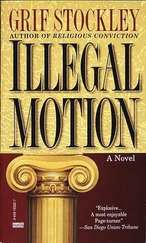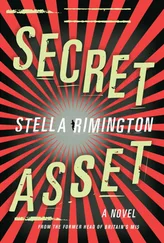“How thoughtful of you,” she said expressionlessly. He shrugged, controlling his annoyance. Didn’t she appreciate the opportunity she was being offered? If she sorted this out, she would have the eternal gratitude of the FCO and MI6. Well, not perhaps eternal. She thinks she’s being set up, Fane decided, but then conceded to himself that in one sense she was absolutely right. For it was not normal practice for an MI6 officer to choose which MI5 officer was going to work with him. Or to try (and this he fervently hoped wasn’t so obvious) to control what should be, at the very least, a joint operation.
“I wish we had a little more to go on,” said Liz finally. “There are at least thirty oligarchs in London who could be targets.” She thought for a moment. “If they’re focusing on someone politically active, that helps to narrow things down. But we still have at least half a dozen possibles. Matrayev—he says they’ve already tried—Obukhov, Morozov, Rostrokov, Brunovsky, Meltzer, Pertsev… I’m sure there’re several others who could be eligible.”
Fane nodded sagely, but inwardly he was pleased to see her already at work on the problem they faced. She can’t help herself, he thought, and he knew he was just the same. What had Adele said the first time she’d left him? “When your job takes you over, I might as well not be here. So I won’t be.”
“Anyway,” said Liz, “I’ll wait to hear from Brian about this.” She glanced at her watch. “If that’s all, please excuse me. I should get back.”
Fane was slightly irked by the suggestion she had more pressing things to do, but realised that this was all he could expect at this stage. He stood up to shake her hand, saying, “You and I will need to work together on this.”
She nodded—was it reluctantly? He hoped not. “I’ll ring you,” she said. “That is, if Brian gives me the case.”
“Never fear, Elizabeth,” he said lightly, hoping to end the meeting on a friendly note. But he suddenly realised she was cross.
“It’s Liz,” she said sharply. “People call me Liz.”
“I beg your pardon,” he said, annoyed that he felt it necessary to apologise. God, he thought as she went out of the door, she is prickly.
But at least she had a sense of humour, unlike so many of her po-faced colleagues in Thames House. And Fane found himself looking forward to her phone call, and to working with her. When he glanced out the window, he saw that the sun was shining, the tide was coming in and the river held a hint—just a hint—of blue.
As he approached the house in Belgravia, a beautiful white stuccoed mansion just off Eaton Square, Jerry Simmons kept his eyes peeled, which was what he was paid to do. But there was nothing unusual on the street.
A month before there’d been a man sitting in an electric blue Audi saloon car, two days in a row, within view of the house. Each day he’d disappeared by mid-morning, though once Jerry thought he’d spotted the car, further down the street, at dusk.
Jerry reckoned that the man had been there on Rykov’s orders, probably to confirm where Jerry worked. Certainly since then there’d been nothing unusual, although Tamara, the PA, had been jittery lately. But then she’d always struck Jerry as highly strung, neurotic even. One day she’d grilled him after a substitute postman had made the delivery. Had he seen him? Did he look genuine?
Jerry’s daily routine was straightforward. He’d come out from the Underground in his standard blue chauffeur’s suit, do up his tie and walk across the park in time to reach the house by eight o’clock. There he’d collect a mug of tea from Mrs. Grimby in the vast basement kitchen, then retreat to the Bentley Arnage, and wait, reading the Mirror he’d brought along with him on the Tube. By eight-thirty the Russian would come out and get into the back seat, and Jerry would drive him to the gym, an expensive place with a pool down near Chelsea Harbour. Then on to any appointments, and perhaps a restaurant for lunch, after which the Russian liked to be in his house.
On those mornings when Brunovsky stayed in, Jerry might go out and top the car up with petrol, get it washed or take it for its quarterly service; otherwise, he killed time by waxing and polishing the car until it gleamed, by making himself useful around the house (he was good at DIY) or just by reading.
It could be a long day sometimes, especially when there was an evening engagement, but his weekends were usually free, since Brunovsky liked to spend them in the country where he kept a Range Rover which he drove himself. And the money was good enough, so he wasn’t complaining, especially now that he had the generous top-up from Rykov.
He had had two more meetings with Rykov, though they had been brief. He’d given accounts of his employer’s comings and goings, and supplied what little information he had about where the man might be going next. It had seemed skimpy even to Simmons, but Rykov had not complained. And he’d paid him well.
Still, it violated what Simmons knew should be his professional code: a man had one employer, and therefore one loyalty; less clearly, it also stirred some unease, since Jerry was well disposed to the Russian and it seemed obvious that Rykov’s close interest in him was a threat of some sort.
Not that he knew his employer very well. He was small and wiry, but seemed a cheerful bloke. His English was excellent, and he always said hello to Jerry in the morning and asked how he was. He would apologise if his schedule changed unexpectedly, or if he had to go out suddenly in the evening. But they didn’t have much other conversation, and when he was on his mobile, which seemed most of the time, or Tamara was with him, he spoke in Russian.
Tamara was not so friendly. Frosty, fortyish, dyed blonde hair, she spoke English with an accent that got on his nerves, though that was nothing compared to her manners, which were high-handed and officious. She wasn’t Russian herself, but from some country Jerry could not identify. Macedonia? Montenegro? Something like that, though you would think she had been born on Park Lane the way she behaved. Her demeanour suggested that although she too worked for the Russian, she was not a mere employee—which someone like Jerry, who was a mere employee, should not forget.
Yet she was the only unpleasant note in the household, which had a sizeable retinue—Mrs. Grimby the cook, a housekeeper named Warburton who didn’t say much but was friendly enough, a series of temps who helped Tamara when she found typing beneath her, a young maid, two gardeners and Monica, Brunovsky’s girlfriend. She was nice, Monica—a looker of course, but not stuck up. He was sometimes asked to chauffeur her on shopping expeditions, though most of the time she seemed happy to drive herself. Who wouldn’t, given an Audi 6 coupé and licence to knock up as many parking fines as they wanted?
This morning he was collecting his tea from Mrs. Grimby when he heard voices in the corridor upstairs, speaking in Russian. He was used to the voices of Tamara and the boss, and today there was a strain to their exchanges, which Jerry could detect without understanding a word.
“Is he going to the gym today?” he whispered to Mrs. Grimby. Stout and white-haired, she wore an apron around her ample waist and was opening a canister of flour.
“I don’t know,” she said equably, “though he’s here for lunch. But I think something’s upset him.” She raised her eyes; upstairs, voices continued in an agitated staccato of Russian. Suddenly he heard the noise of clacking heels come down the stairs, and Tamara swept into the kitchen.
“Jerry,” she said shortly, “when did you get here?”
Читать дальше












